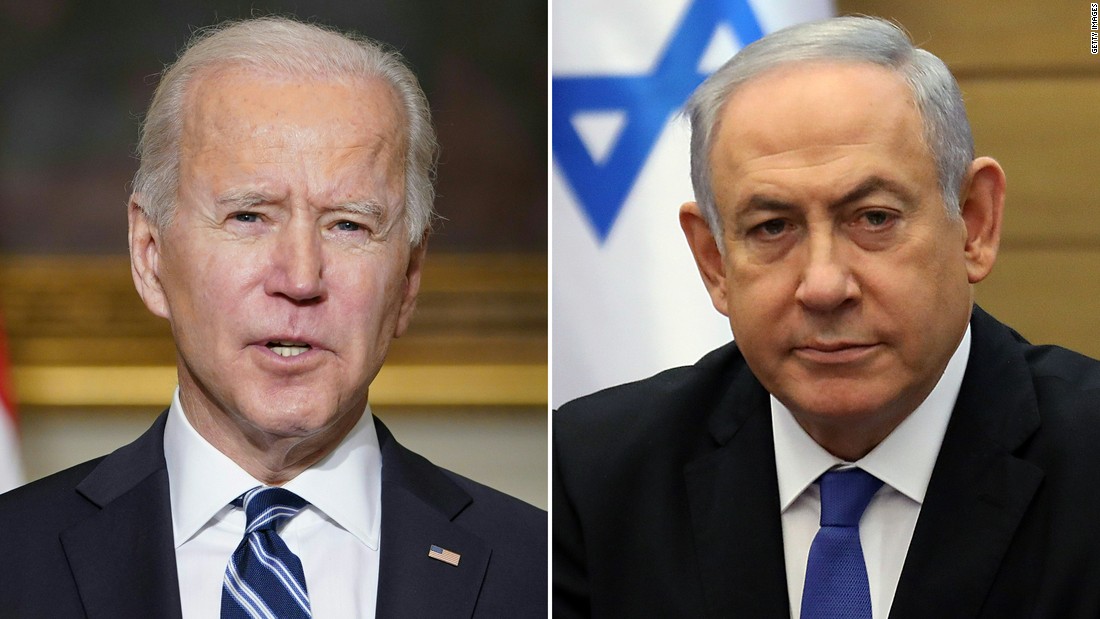“It was a good conversation,” Biden told reporters in the Oval Office shortly after the call ended, without elaborating.
In a Twitter post, Netanyahu said he spoke to Biden for about an hour in “friendly and warm” terms, affirming the US-Israel alliance and discussing issues related to Iran, regional diplomacy and the coronavirus pandemic.
He attached a photo of himself to the phone, smiling widely, with a map of the Middle East in the background.
Asked why Biden waited so long to call Netanyahu after speaking with about a dozen other world leaders, the White House said last week that there was nothing to be read about the delay.
“He will speak to him soon,” said press secretary Jen Psaki, declining to provide a specific date or time for the conversation. She later claimed that Netanyahu would be Biden’s first call to a Middle Eastern leader.
Still, the decision to forgo a phone call to the Israeli prime minister for almost his first month in office seemed hardly a coincidence. A source familiar with the White House’s thinking said there was a sense of reward in making Netanyahu wait for a call.
The Israeli leader’s cold treatment of President Barack Obama and his close alignment with Trump and the Republican Party, as well as the time it took to congratulate Biden on his victory, have not gone unnoticed, the source said.
Other current and previous American officials said that Biden was simply “correctly assessing” the US relationship with Israel and that, with the challenges presented by China, Russia, climate change and other problems, the Middle East is not a priority.
For his part, Netanyahu has minimized the delay.
“(President Biden) calls the leaders in whatever order he finds acceptable, North America, then Europe,” Netanyahu told a news conference last week. “He has not yet arrived in the Middle East. I assume he will call me. Believe me, I have no doubt about it.”
On Friday, Biden is expected to set out his foreign policy vision in more detail in a virtual speech at the Munich Security Conference, including the prospects of returning to the nuclear deal with Iran.
Israel was opposed to that deal, and the issue is likely to be a split between Netanyahu and the Biden government, just as it did with Obama.
But on other issues the two men seem to be aligned, including support for the normalization agreements between the Arab states and Israel that the Trump administration helped to broker.
CNN’s Kylie Atwood, Oren Liebermann, Andrew Carey and Amir Tal contributed to this report.
